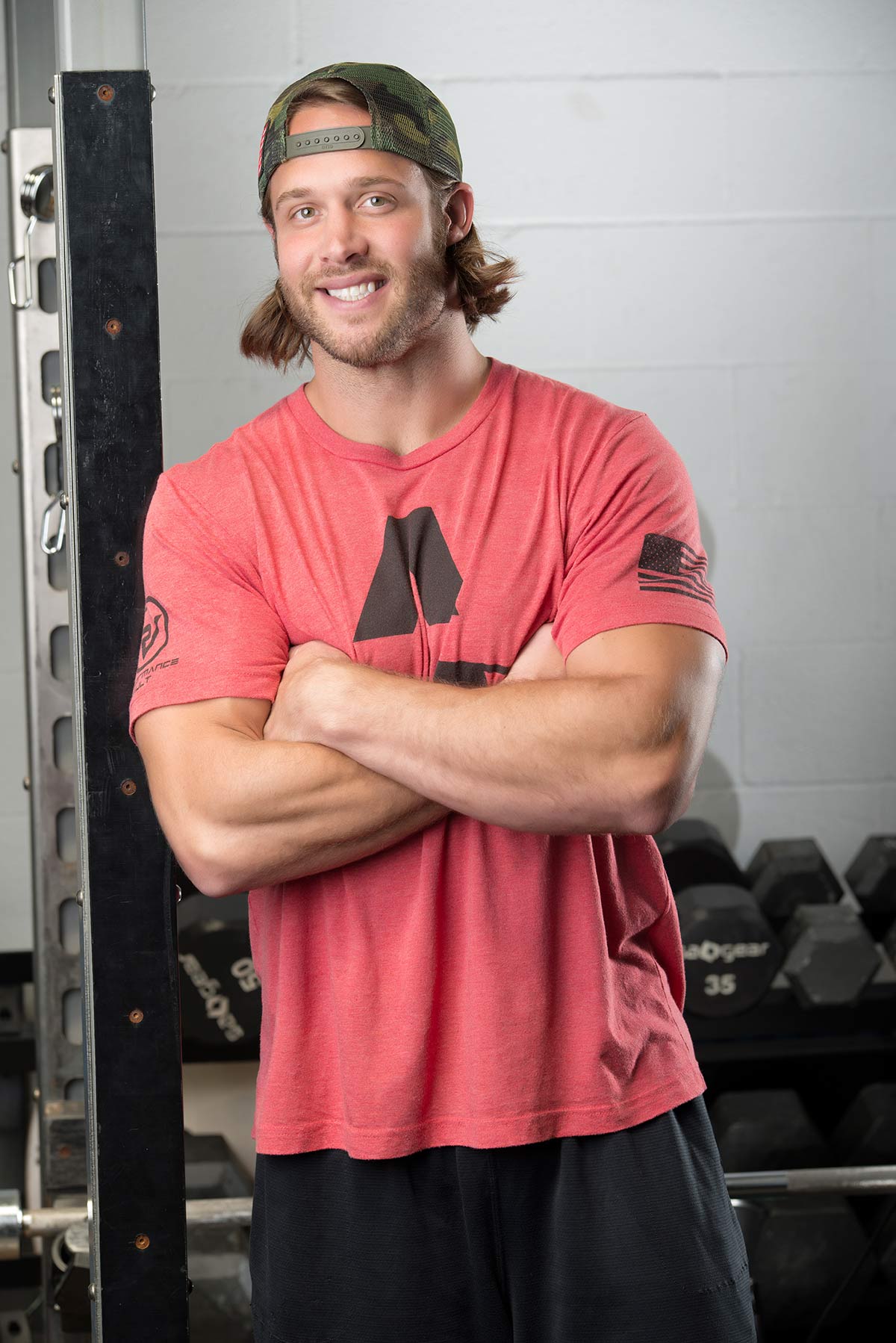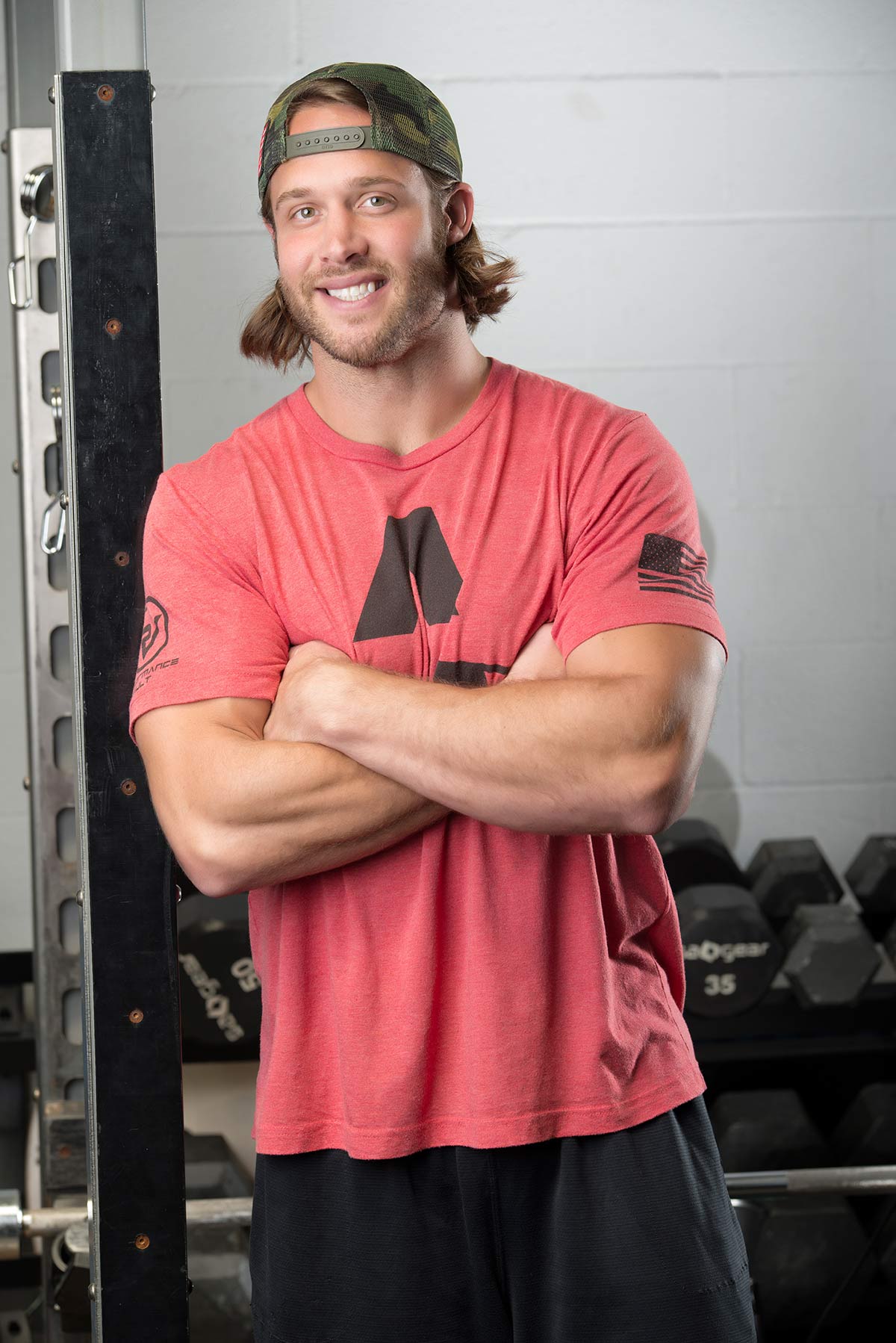David Vobora: Find Your True North
Vandal alumnus and former NFL linebacker will relay lessons learned training athletes with disabilities to University of Idaho Convocation
Through countless hits on the gridiron, David Vobora learned that pain is an inevitable part of life.
A mindset that allows suffering, however, is optional.
That’s the mantra the University of Idaho alumnus and former NFL linebacker puts to military veterans and athletes with disabilities as the founder of the Dallas-based Adaptive Training Foundation.
“It’s a place for them to come, really embrace their fears and start to empower themselves and see that they’re far greater than those fears,” Vobora said.
Vobora, whose efforts help train and motivate athletes with life-altering injuries, will welcome Vandals back for the fall during UI’s Convocation ceremony Aug. 17.
A member of the class of 2008 who earned a degree in psychology and communication studies from the College of Letters, Arts and Social Sciences, Vobora came to his perspective after going through his own downward spiral at the end of his NFL career. After three seasons with the St. Louis Rams and a season with the Seattle Seahawks, a shoulder injury left him with an addiction to painkillers.
It wasn’t until he went through a detox, losing 34 pounds, and began a rehabilitation process that Vobora began to listen to the motivator inside him. That inner voice urged him to use the skills he’s mastered through a lifetime of athletic endeavors to train for the good of others.
“I was very loud and clear in my gut,” he said. “I didn’t know what was next, but my sanctuary was the gym.”
Vobora and his wife, Sarah, moved to Texas so he could start a gym to train athletes. That’s when he met U.S. Army Staff Sgt. Travis Mills, a quadruple amputee injured while serving in the war in Afghanistan. The two started working out together and Vobora challenged Mills to push himself and confront the biggest fear in the veteran’s life — falling.
"Through that, Mills became a like martial artist. He used what was accessible to achieve his goals," Vobora said. Eventually, Mills' fear of falling became a foundation for his training.
Vobora was convinced Mills' perceived handicap became the exact reason he would persevere.

Vobora founded the Adaptive Training Foundation, an effort that has grown exponentially in the past three years, and the nonprofit disability-support program has empowered countless others. It’s Vobora’s hope that his “sweat psychology” will continue to grow and one day be taught in gyms throughout the United States.
Vobora’s message is to challenge the status quo and have his trainees excel by working out of their comfort zones. These athletes will go out and fail, but failure is a part of winning, he said. By challenging that difficulty with a little sweat psychology, they will eventually have abilities they never dreamed of following their injuries.
That perseverance is a quality Vobora picked up in class and at the Kibbie Dome during his time at UI. A member of a Vandal football team that saw little success on the field, Vobora said he often looked to others for validation when he should have looked inward.
“I won nine total football games in four years. That was tough,” he said. “I don’t go into any competition with losing as an option. Those losses, they prepared me for the wins that I have today.”
It’s a message he’s spreading to his fellow Vandals. The difficulties he faced on the turf, and the skills of reflection he learned in his psychology and communications studies, helped prepare Vobora to become the self-described “hope dealer” he is today.
All Vandals can take advantage of that opportunity, Vobora said. They just have to look at their time in Moscow as a means to learn the problem-solving and life-challenging skills they will need to enter the workforce. College isn’t only about getting a degree as a springboard to making money, it’s about learning to apply those problem-solving skills when life’s difficulties head their way.
They just have to find their own true north and put it all on the table.
“Showing that scar, being willing to show that vulnerability, is something I didn’t do,” he said. “I think it could avert a lot of pain. It’s part of my story and it’s the part that I’m most proud to tell.”
Incoming college students have a lot of responsibilities pulling them in all sorts of directions, but they should also find little refuges, Vobora said. A recent trip to the UI campus led him to embrace the pleasant stillness of the Palouse and places like the UI Arboretum that allow for quiet reflection.
“Be OK with discomfort and allowing yourself to process it,” he said. “Allowing yourself to create some isolation to listen to that internal voice, that’s where the great comes from.”
Article by Brad Gary, University Communications & Marketing







